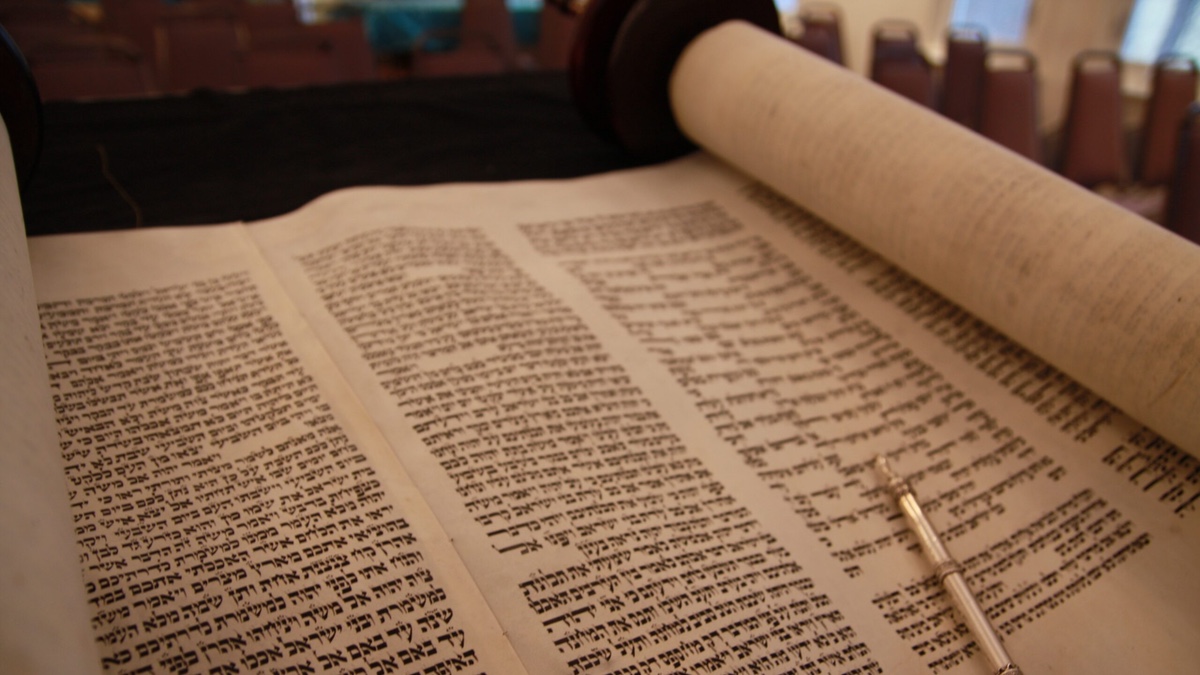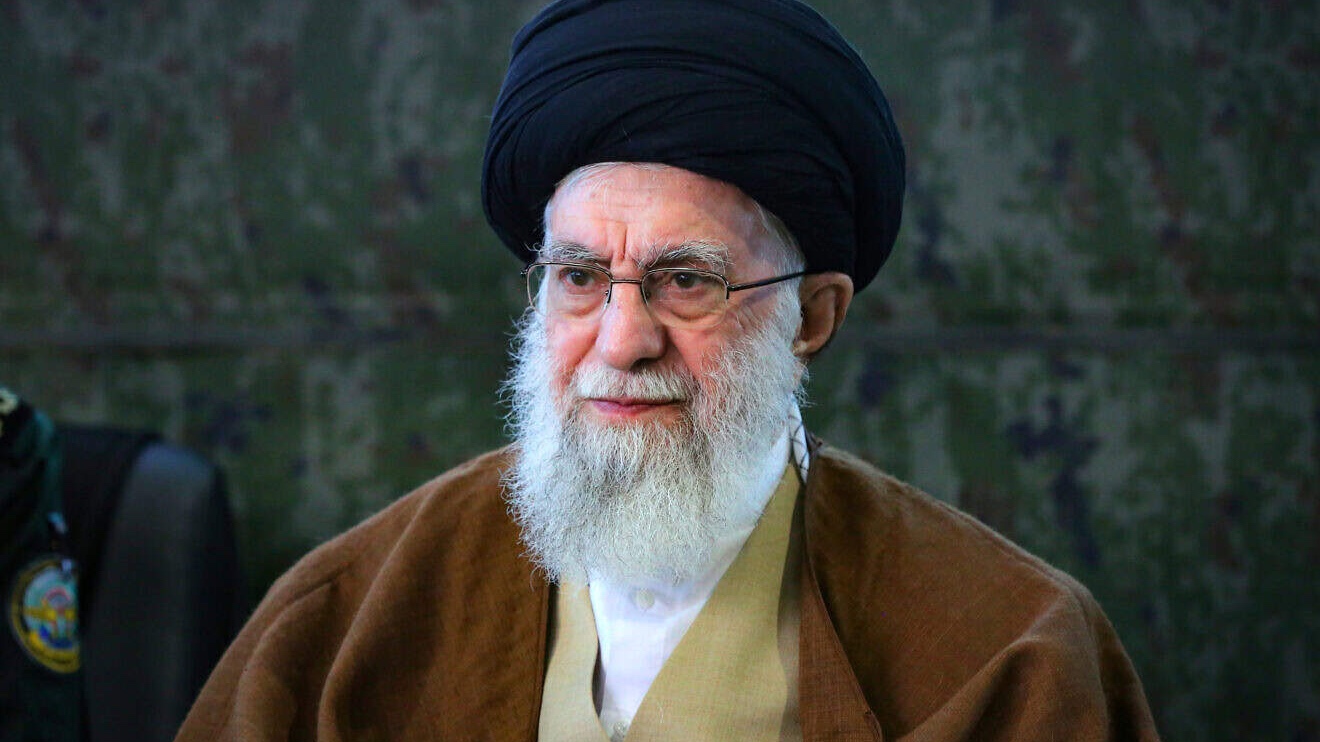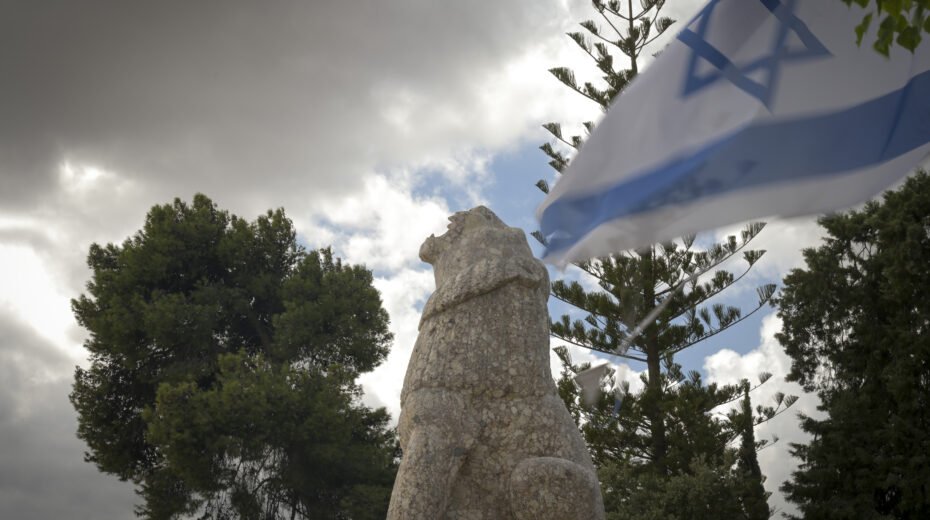On the road to Emmaus, Yeshua met with two of His disciples and, beginning at Moses and all the Prophets, He expounded to them in all the Scriptures the things concerning Himself. (Luke 24:27). For our Torah studies this year, therefore, week by week we will seek to discover how all of Torah prepared the way for the coming Messiah.
29th November 2025 (9 Kislev)
Vayetze (And went out): Genesis 28:10-32:2
The Covenant was confirmed with Jacob soon after he began his journey from Canaan towards Haran (Genesis 28:13-15). Just when he needed encouragement, God came to him in a dream. God’s faithfulness was also to remain with Jacob despite the difficult twenty years he would spend with Laban’s family.
In every generation, God’s covenant purposes move forward. What began with Abraham, Isaac and Jacob was to be broadened into the family of twelve sons born in Padan Aram. Despite the deception of Laban towards Jacob in bringing Leah to Jacob as wife before Rachel, and despite the fact that the maidservants of both Leah and Rachel bore some of Jacob’s sons, God used the circumstances for His own purpose. He was active in the most intimate relationship of husband and wife:
When the Lord saw that Leah was unloved, He opened her womb; but Rachel was barren. So Leah conceived and bore a son, and she called his name Reuben; for she said, “The Lord has surely looked on my affliction. Now therefore, my husband will love me.” (Genesis 29:31-32)
It is appropriate to list all the sons of Jacob, because in them is the beginning of the next stage of the covenant plan. The numbers indicate the order of their birth:
Leah’s sons
Reuben (Behold a son) 1
Simeon (Heard) 2
Levi (Attached) 3
Judah (Praise) 4
Issachar (Wages) 9
Zebulun (Dwelling) 10
Rachel’s sons
Joseph (And will add) 11
Benjamin (Son of my right hand) 12
Rachel’s Maidservant Bilhah’s sons
Dan (Judge) 5
Naphtali (My Wrestlings) 6
Leah’s Maidservant Zilpah’s sons
Gad (Troop or Fortune) 7
Asher (Happy) 8
Also Leah bore a daughter named Dinah, meaning judgement, born after Zebulun and before Joseph. The names of the children were influenced by the circumstances of their birth. Following Jacob, the history of Israel is the history of the tribes bearing the names of Jacob’s sons, and continues to our day.
Jacob’s time with Laban is described in some detail and nothing is hidden from the family struggles, especially concerning the wealth that was acquired and divided between Laban and Jacob as the flocks and herds grew. In a human court of justice, we might consider arguments both in favour and against Laban’s and Jacob’s behaviour through all of this. Yet there is no doubt about God’s continued favour resting on Jacob:
So God has taken away the livestock of your father and given them to me. And it happened, at the time when the flocks conceived, that I lifted my eyes and saw in a dream, and behold, the rams which leaped upon the flocks were streaked, speckled, and grey-spotted. Then the Angel of God spoke to me in a dream, saying, ‘Jacob.’ And I said, ‘Here I am.’ And He said, ‘Lift your eyes now and see, all the rams which leap on the flocks are streaked, speckled, and grey-spotted; for I have seen all that Laban is doing to you. I am the God of Bethel, where you anointed the pillar and where you made a vow to Me. Now arise, get out of this land, and return to the land of your family.’ (Genesis 31:9-13)
God’s ways are beyond our human logic. He separates to Himself, as Jacob divided the flocks of Laban, those who are called and respond to His covenant purposes, and cares for them as a shepherd does his flock. This thread of truth goes right through Scripture and is fulfilled in the imagery of the Matthew 25 where in the final judgement, the sheep are separated for eternal life from the goats who are excluded:
When the Son of Man comes in His glory, and all the holy angels with Him, then He will sit on the throne of His glory. All the nations will be gathered before Him, and He will separate them one from another, as a shepherd divides his sheep from the goats. (Matthew 25:31-32)
As with his father Isaac, despite human failings, Jacob took most seriously his covenantal relationship with God. His response to meeting with God in a very special way at Bethel, was to commit himself to giving back to God from what God had given to him, in the form of tithes. In this he revealed the heart issues of tithing, to be a response to the God who cares for us and to be bound to Him through faith:
Then Jacob made a vow, saying, “If God will be with me, and keep me in this way that I am going, and give me bread to eat and clothing to put on, so that I come back to my father’s house in peace, then the Lord shall be my God. And this stone which I have set as a pillar shall be God’s house, and of all that You give me I will surely give a tenth to You.” (Genesis 28:20-22)
Jacob’s dream of angels ascending and descending from heaven on a ladder symbolised God’s confirmation of His presence with him, as His chosen means of fulfilling the Covenant He made with Abraham. This same imagery was used by Yeshua when He gently proclaimed Himself to be the Messiah, the fulfilment of God’s covenant purposes.
The imagery is recalled in the Gospel of John where Yeshua called Nathanael. Here Yeshua is seen as both the Son of God and the Son of Man. As the Son of God, comparable to the way God called Jacob for His Kingdom purposes, Yeshua called Nathanael into discipleship. As the Son of Man, He revealed Himself as chosen by God for the fulfilment of God’s covenant purposes. The call of God on Yeshua was to complete what was promised to and began with Abraham, Isaac, Jacob and his twelve sons.
The broad leafed fig tree that Nathanael sat under for shade when Yeshua called him was symbolic of sitting under the authority of Scripture as interpreted by the Bible teachers of the day – the Jewish Rabbis. Was Nathanael reading the very Torah portion that we are reading this week? Was this a preparation for meeting Yeshua and hearing what He had to say to him, which brought forth the declaration that Yeshua is the Son of God? Was Nathanael praying to God from a pure heart motive to understand this passage of Torah, which was answered in his meeting of Yeshua? Quite likely.
Jesus saw Nathanael coming toward Him, and said of him, “Behold, an Israelite indeed, in whom is no deceit!” Nathanael said to Him, “How do You know me?” Jesus answered and said to him, “Before Philip called you, when you were under the fig tree, I saw you.” Nathanael answered and said to Him, “Rabbi, You are the Son of God! You are the King of Israel!” Jesus answered and said to him, “Because I said to you, ‘I saw you under the fig tree,’ do you believe? You will see greater things than these.” And He said to him, “Most assuredly, I say to you, hereafter you shall see heaven open, and the angels of God ascending and descending upon the Son of Man.” (John 1:47-51)
This was confirmed at Yeshua’s baptism:
When all the people were baptized, it came to pass that Jesus also was baptized; and while He prayed, the heaven was opened. And the Holy Spirit descended in bodily form like a dove upon Him, and a voice came from heaven which said, “You are My beloved Son; in You I am well pleased.” (Luke 3:21-24)
This fulfilled the prophesy of Isaiah (Chapter 11, Verse 2):
The Spirit of the Lord shall rest upon Him,
The Spirit of wisdom and understanding,
The Spirit of counsel and might,
The Spirit of knowledge and of the fear of the Lord.
Covenant history has moved on since then, with its lessons from Torah to be applied to us as well as Jacob and Nathanael. God continues to seek those with whom his covenant promises and blessings can reside. Yeshua is still gathering the flock of God. As He said to a woman from Samaria (John 4:23-24):
…the hour is coming, and now is, when the true worshipers will worship the Father in spirit and truth; for the Father is seeking such to worship Him. God is Spirit, and those who worship Him must worship in spirit and truth.
We, who are called through faith in Yeshua to be heirs of God’s covenant purposes in this earth and for all eternity, are greatly privileged, as were those who went before us.
The Holy Spirit will be given to us as well, both as a confirmation of our part in the covenant purposes of God and enabling us to fulfil them:
… you shall receive power when the Holy Spirit has come upon you; and you shall be witnesses to Me in Jerusalem, and in all Judea and Samaria, and to the end of the earth. (Acts 1:8)














Amein!!